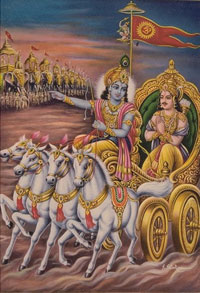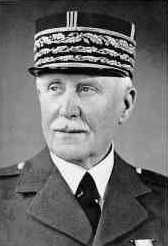 As anyone who has read my other blog, Quigley in Exile, will have noticed, I am a Buddhist and my first interests in life are dreams, art and patterns of culture as they evolve and erupt from the Unconscious to the everyday world. This can be expressed as thinking about character rather than objectivity. Zen is about character. All journalism and all life in the West since the 15000s is objective. But what I do follows in zen and Taoism described as “the path of integrity.” When times are flush, anyone and their wife can be President. Daryll can be President. But invariably, strengths yields to disorder and nature calls forth character again. I wanted to explain my perspective in light of that.
As anyone who has read my other blog, Quigley in Exile, will have noticed, I am a Buddhist and my first interests in life are dreams, art and patterns of culture as they evolve and erupt from the Unconscious to the everyday world. This can be expressed as thinking about character rather than objectivity. Zen is about character. All journalism and all life in the West since the 15000s is objective. But what I do follows in zen and Taoism described as “the path of integrity.” When times are flush, anyone and their wife can be President. Daryll can be President. But invariably, strengths yields to disorder and nature calls forth character again. I wanted to explain my perspective in light of that.
In the 1940s and ’50 psychoanalysis was in fashion and a number of interesting perspectives first appeared in the West. Norman O. Brown’s Life Against Death is useful, particularly to formative minds. Brown combined what was current psychological theory with sociology and politics to point out that culture behaves collectively much as individuals do. One of Freud’s observations was that neurotics don’t remember, they repeat. That is, when someone is inhibited and blocked from the natural flow of her or his inner life, they reach a blank wall when they try to go inward, as everyone must. That individual is compelled outward; compelled to Extroversion, but cannot make progress in the phases of life as one phase leads naturally to another. Instead, the individual substitutes a novelty for real experience and will go off on a tangent. When the novelty wears off, the individual is left again in fear, facing the gaping maw of the inner life and the source of obsession and fear. He adopts another novelty, and his life becomes a string of novelty in sequence, with short breaks in between.
Brown made the same point about society. When a society or a subculture in society becomes afraid to go forward in life it will substitute a novelty for true, authentic experience. Likewise, it will substitute a string of novelties in a row: it is a question of substituting easy inauthentic experience for difficult authentic experience. But even authentic experience can have inauthentic qualities, depending on the individual. Working for the poor is authentic, but if someone works for the poor to get away from his wife and family and family (dharma) responsibilities, working for the poor is inauthentic behavior. Furthermore, all societies go in sequence, with one idea following another. When authentic goals are achieved, a healthy person and society goes on to the new day and leaves the past behind. Neurotic societies, like individuals, repeat themselves.
But in times of crisis, all people become afraid of the difficult task ahead, and war is the most difficult task. Lord Krishna’s most famous speech to Arguna, in the Baghavad Gita, was on the battlefield. Arguna, at the moment of crisis, hesitated and adopted a pacifist stance. But all life crises are the same. It is natural as well that when society has been away from real crisis for a long time, it becomes apprehensive in facing difficult duty:
We are at that point of crisis today. Classically, societies face their greatest crisis between the 60th and 65 year of the post-war life cycle; it is the end of the third generation and the beginning of the fourth, which arrives in crisis and builds the world new again.
Today the press and the rank and file in politics largely have not addressed the crisis at hand. For the most part, they are just hoping the leadership crisis will go away and things will go “back to normal.” There will be no going back. This is the crisis which will bring us forward and bring a new generation to dominance.
There is almost a hysterical call today for Senators Obama and Clinton. Neither of these are inherently prepared to a management position as critical as the Presidency. Neither addresses the challenges. They are both novelty and inauthentic candidates in that they attempt to bring forth in the public a moment of the past; Senator Clinton is a Sixties generational figure while Obama is reminiscent in his early writing of both Malcolm X and Richard Wright, leading figures of the ‘50s. Neither of these figures has the strength to address the crisis; Senator Clinton especially has appeased and empowered the right-wing throughout the crisis. When we face and overcome the crisis, those who appeased will be remembered much as Pierre Laval and Marshall Petain are remembered in
of the ‘50s. Neither of these figures has the strength to address the crisis; Senator Clinton especially has appeased and empowered the right-wing throughout the crisis. When we face and overcome the crisis, those who appeased will be remembered much as Pierre Laval and Marshall Petain are remembered in
There is a psychological dimension to this: everyone knows this – it just has not yet appeared in the Conscious mind yet because we are not yet ready to face the difficult task our duty demands. We are not yet ready to cross that river. Howard Dean is a novelty candidate as well.
But we also know what we need to do when we find the courage to cross the river. INVARIABLY, moments like this leave objectivity, marketing statistics and the rational path and default to character. We already know who the character is who will lead us across the river.
In the primary of ’04, which was the coldest winter on record here in
General Clark has been a solid state figure from then until now. None of the other candidates have any sense of urgency, or shock, of disbelief when the administration takes another further step into arrogance, hubris and illegality. Only
In the ’04 primary season when
No comments:
Post a Comment